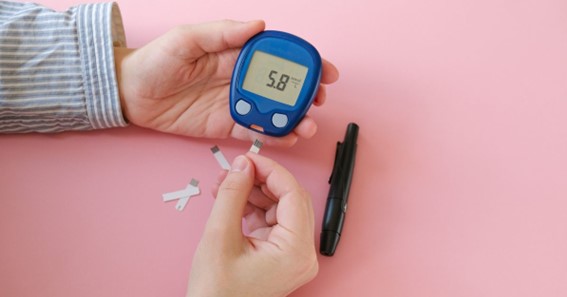Let’s understand Blood Sugar Level
A fasting blood sugar level is one of the critical indicators that can be used to diagnose and monitor diabetes. A fasting sugar level is the glucose amount in your blood that is measured after you have not eaten for at least 8 hours. The goal is to keep your fasting sugar levels 99 mg/dL or lower. A high reading on these tests may mean that:
- You are at risk for developing diabetes or prediabetes
- You are taking medication that increases the risk of developing diabetes (such as steroids)
- You have too much fat around your stomach (abdominal obesity) or liver diseases
If you have high levels, your doctor may recommend lifestyle changes such as weight loss or medications. However, knowing how your body responds to food and exercise is essential before making such lifestyle changes.
Why Should You Get Tested for Your Sugar Levels?
If you are unsure whether you should get tested for blood sugar levels, the following reasons may help you decide.
Testing for blood sugar levels will:
- Help you identify diabetes and prediabetes
- Help you identify other health conditions affecting vital organs like kidneys, heart, etc.
- Help you to understand how well your ongoing medicines for diabetes are working
- Allow you to go for a personalised treatment plan if the results of your blood sugar range fasting test indicate diabetes.
- Provide insights into future health risks
What are the Risks Associated with High or Low Blood Sugar Levels?
The risk of high or low blood sugar levels is a long-term health concern. Numerous ways health can be affected due to high fasting blood sugar levels include:
- Renal disease: High blood sugar harms your kidneys, which, if ignored, can result in kidney failure or even cancer.
- Glaucoma, cataracts, diabetic macular oedema and diabetic retinopathy can affect your eyes. Over time, it can injure the eyes, causing visual problems that can lead to blindness.
- Heart attack and stroke: Having high blood sugar makes it more likely that you may experience atherosclerosis, the artery hardening that can result in heart attacks and strokes.
- High blood pressure: Since high blood pressure raises your risk of heart attack and stroke, as well as other age-related illnesses like arthritis and dementia, consuming foods high in sugar can also make you more likely to develop these ailments.
- Weight gain: Consuming meals heavy in refined carbohydrates, such as white bread, white rice, and potatoes, can stimulate your body to create more insulin, raising your blood sugar levels dangerously and causing you to gain weight.
Low blood sugar levels can be caused by several factors shared below:
- Fasting for too long
- Taking more insulin
- Not consuming enough carbohydrates as per your insulin dosage
- Duration and intensity of your physical activity
- Consuming alcohol
- The quantity of protein, fibre, and fat in your meal
- Humid and warm conditions
- Drastic changes in your schedule
- Being at a high altitude
- Undergoing puberty
- Menstruation
Low blood sugar levels may result in hazy vision, trouble focusing, fuzzy thinking, slurred speech, numbness, and sleepiness. Long-term low blood sugar levels can starve the brain of glucose, which can cause seizures, comas, and rarely even death.
What do certain symptoms indicate?
There are symptoms you can notice and correlate with your fluctuating blood sugar range fasting test results.
Type 1 Diabetes and its Symptoms
Type 1 Diabetes is a lifelong condition affecting how your body produces insulin. This can result in high blood sugar levels and, if left untreated, it can become serious health complications.
Symptoms of type 1 diabetes:
- Increased thirst
- Increased urination
- Weight loss
- Blurred vision
- Slow healing of cuts or wound
Type 2 Diabetes and its Symptoms
Type 2 diabetes is a chronic condition that affects the way your body metabolizes sugar and other nutrients. This type of diabetes is caused by the body not producing enough insulin or the body’s cells being resistant to insulin. Type 2 diabetes usually has no symptoms in its early stages. The first symptom may be excessive thirst, frequent urination, or increased hunger.
Tests and Ranges of Sugar Levels
To know if you have Type 2 diabetes, you need to get tested for it by a doctor at least once every three years. The blood sugar range fasting test measures glucose levels in your blood after fasting for 8 hours. A normal range for this test is less than 100 mg/dL. The oral glucose tolerance test measures your body’s response to glucose after eating a certain amount of carbohydrate-rich food, followed by testing it two hours later. A diabetes normal range for this test is less than 140 mg/dL two hours after consuming the food.
Take Control of Your Health
Fasting blood sugar levels significantly impact your quality of life and life expectancy. The key to preventing diabetes is maintaining a healthy weight, exercising regularly, and eating a healthy diet. There are many ways that you can monitor your fasting blood sugar levels, but it’s best to consult with your doctor or healthcare provider first before making any changes.







